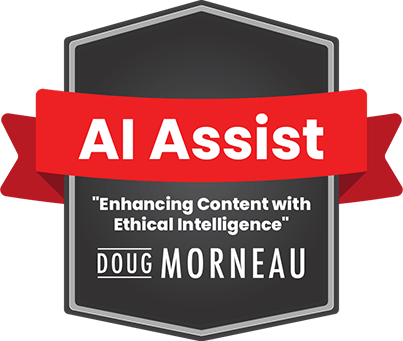Is Honesty the Best Policy? The Truth About AI Content Disclosure
In today's digital landscape, the integration of artificial intelligence (AI) into content creation is becoming increasingly common.
As AI tools become more sophisticated, they are capable of generating content that is virtually indistinguishable from that written by humans. This raises a crucial question for content creators: should they disclose the use of AI in their work?

The Ethics of Transparency
Transparency is a cornerstone of trust in any relationship, including the one between content creators and their audience.
When readers trust that the content they are consuming is authentic, they are more likely to engage with it and remain loyal to the source.
Disclosing the use of AI can be seen as a way to maintain this trust, ensuring that readers are fully aware of how the content is produced.
On the other hand, some argue that as long as the content meets the expected standards of quality and relevance, the method of its creation is irrelevant. In this view, disclosure is unnecessary and might even detract from the content's perceived value.
Audience Expectations
Understanding your audience is key to making an informed decision about AI disclosure.
Some audiences may appreciate the efficiency and innovation that AI brings to content creation, viewing transparency as a positive attribute. Others might feel that AI-generated content lacks the personal touch and authenticity of human-written content, potentially diminishing their engagement and trust.
For instance, a tech-savvy audience might be more accepting of AI use, seeing it as a natural progression of technological advancement. Conversely, an audience that values personal connection and human insight may prefer full transparency regarding AI involvement.
Legal Considerations
Beyond ethical and audience considerations, there are also legal aspects to consider. In certain jurisdictions, regulations may require disclosure of AI-generated content to prevent misleading consumers. Failing to comply with these regulations could result in legal repercussions and damage to your brand's reputation.
Practical Benefits of Disclosure
While the ethical and legal reasons for disclosure are compelling, there are also practical benefits to consider. Being transparent about AI use can:
- Build Trust: Transparency can enhance your credibility and foster trust with your audience.
- Encourage Engagement: An open dialogue about AI use can invite feedback and engagement from your audience, leading to improvements in content quality.
- Differentiate Your Brand: Embracing AI openly can position your brand as innovative and forward-thinking.
How to Disclose AI Use
If you decide that disclosure is the right path, it's important to do it effectively. Here are a few tips:
- Be Clear and Concise: Use straightforward language to explain how AI is used in your content creation process.
- Provide Context: Explain the benefits of using AI, such as increased efficiency and the ability to deliver timely, relevant content.
- Highlight Human Oversight: Reassure your audience that, despite the use of AI, human oversight ensures the content meets high standards of quality and relevance.
------------------------------------------------------------------------
On My Personal Brand Website, I’ve Made The Decision To Share As Much As Possible Round The Content You May Find Created By Our Brand. You Can See The Extensive Details In The Image Below.
CONTENT QUALITY AND INTEGRITY:
Content Integrity
AI Assist Policy and Disclosure
Content WARNING – Disclaimer
Editorial Process
Meet Our Expert Contributors
------------------------------------------------------------------------

What’s your position on Disclosure?
Ultimately, whether or not to disclose the use of AI in content creation is a decision that each content creator must make based on their unique circumstances.
By considering the ethical implications, audience expectations, legal requirements, and practical benefits, you can make an informed decision that aligns with your brand values and goals.
Honesty is often the best policy, and in the case of AI content disclosure, it can lead to stronger relationships with your audience and a more trustworthy brand.
Disclaimer: This post is my opinion as guided by ChatGTP, not legal advice, I’m a marketer and not a Lawyer.

 How to resolve AdBlock issue?
How to resolve AdBlock issue? 